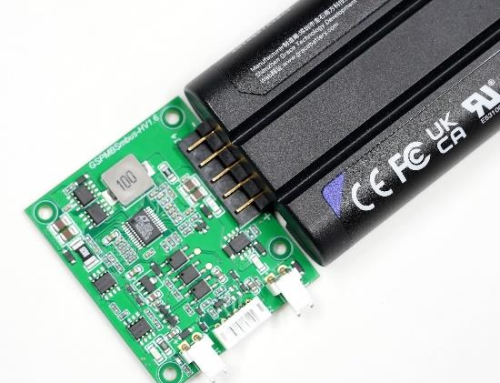What is the Difference between Custom Battery Pack and Modular Battery Pack?
Features of Customized Battery Packs
Custom battery packs have various features that can be customized and optimized for different applications. The following are some of the standard features:
1. Battery Management System (BMS): Most custom battery packs have a BMS that manages and maintains each battery cell, improves battery utilization through balancing, prevents overcharging and discharging, extends battery life, and displays the state of charge.
2. High Energy Density: Customized battery packs usually have high energy density, so they can store more energy in a smaller volume, thus providing longer usage time.
3. Multiple Battery Types: Custom battery packs can use different types of batteries, such as lithium-ion, lithium polymer, or lithium-iron-phosphate, to meet the needs of a particular application.
4. Protective circuitry: Battery packs are often equipped with protective circuitry to prevent overcharging, deep discharging, and short circuits to ensure safe use.
5. Modular design: Customized battery packs can be modular, allowing them to be expanded or downsized to accommodate different power and capacity requirements.
6. Wide Temperature Range: Customized battery packs can operate over a wide temperature range, from -40°C to 85°C, depending on the battery type, output current, and environmental conditions.
7. Low self-discharge rate: A low rate means the batteries can maintain a high charge level after prolonged storage.
8. Long life and high safety: Customized battery packs are designed for long and high safety, often with various safety certifications such as UL, UN38.3, CE, and RoHS.
9. Environmentally friendly: Customized battery packs are environmentally friendly and do not contain toxic materials, hazardous liquids, or gases.
10. Compliance with Transportation Tests: All batteries meet the requirements of UN38.3 “Transportation Tests” to ensure safety during transportation.
These features enable customized battery packs to meet the needs of various specific applications, from portable electronic devices to industrial and military use.
Features of Modular Battery Packs
Modular battery packs are pre-engineered battery modules that offer greater flexibility and can be quickly assembled to obtain the desired capacity and configuration. Modular battery packs have the following characteristics:
1. Customization: Modular battery packs can be custom-designed and manufactured to meet a particular application or device’s power requirements and size constraints.
2. Flexibility: The modular design allows the number of battery modules to be increased or decreased as needed to accommodate different energy and power requirements.
3. Easy Expansion: The battery pack’s modular design allows the user to expand its capacity by adding more modules without replacing the entire pack.
4. Easy maintenance: If a module has a problem, the module can be replaced individually without replacing the entire battery pack, which reduces maintenance costs and time.
5. Standardized components: Modular battery packs usually use standardized components, which helps to simplify the design, production, and maintenance process.
6. High compatibility: The battery pack’s modular design allows it to be compatible with many different devices and systems.
7. Safety: Modular battery packs with built-in safety features such as overcharge, over-discharge, and short circuit protection can be designed.
8. Thermal Management: Modular design allows for better thermal management as effective heat dissipation schemes can be designed to prevent the battery from overheating.
9. Cost-effectiveness: Modular design can reduce production costs because standardized modules can be mass-produced and assembled according to customer needs.
10. Environmental adaptability: Modular battery packs can be optimized for different environmental conditions to ensure performance in extreme temperatures or other conditions.
11. Multi-functionality: Modular battery packs can be designed to suit different usage scenarios and application requirements.
12. Easily Upgradable: As technology evolves, the modular design allows users to easily upgrade battery packs to take advantage of the latest technology.
These features make modular battery packs ideal for many applications, especially where a high degree of customization and flexibility is required.
Modular Battery Pack Advantages and Disadvantages
Modular battery packs are designed to offer a range of advantages but may also have some limitations. Here are some of the advantages and disadvantages of modular battery packs:
Advantages:
1. flexibility and scalability: modular battery packs can be easily expanded according to demand, and users can increase or decrease the number of modules as needed.
2. Ease of maintenance and upgrading: Failure of individual modules can be replaced individually, reducing maintenance costs and allowing easy upgrading to new technologies.
3. Cost-effectiveness: Standardized modules reduce production costs because they can be mass-produced and assembled on demand.
4. Safety: The modular design allows each module to have independent safety features, such as overcharge and overdischarge protection, reducing the risk of failure of the entire battery pack.
5. Thermal management: Modular design contributes to more efficient thermal management as specialized heat dissipation solutions can be designed.
6. Versatility: Modular battery packs can provide customized solutions for various applications and equipment.
7. Environmental adaptability: Modular battery packs can be optimized for different environmental conditions to ensure performance under extreme conditions.
8. Ease of Integration: The modular battery pack makes it easier to integrate it into existing systems or new designs.
Disadvantages:
1. Size and weight: Their modular design may make battery packs larger and heavier than single cells or fixed-configuration battery packs.
2. Cost: While standardized modules may reduce production costs, the initial investment may be relatively high, especially if customized modules are required.
3. Complexity: Modular battery packs may require a more sophisticated battery management system (BMS) to monitor and control each module.
4. Compatibility issues: Modules from different manufacturers may have compatibility issues, limiting their versatility.
5. Performance differences: Minor differences in the modules’ manufacturing process may result in inconsistent performance.
6. Inter-module connections: Electrical connections between modules can be points of failure and require careful design to ensure reliability.
7. Design constraints: Modular design may limit the performance of a battery pack in a particular application because the modules’ size, shape, and performance must be balanced.
8. Market Acceptance: The market may prefer a non-modular battery solution for some legacy applications.
Modular battery packs offer many advantages, especially in applications requiring high customization and flexibility. However, designing and implementing modular battery packs also involves consideration of potential drawbacks and challenges.




